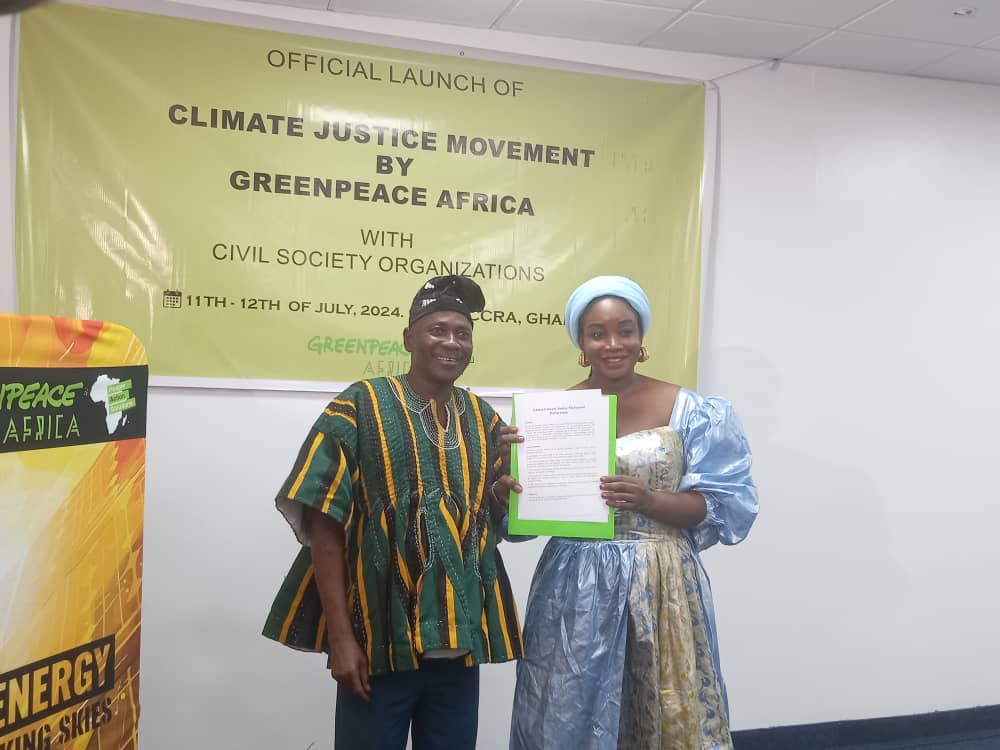By Joyce Danso
Accra, July 13, GNA – Greenpeace Africa has launched Climate Justice Movement in Ghana with a call on the public to see climate injustice as another form of terrorism against nature.
Climate Justice Movement (CJM) seeks to unite civil society groups, community leaders and experts to tackle urgent environmental issues in West African, namely deforestation, food security, devasting effects of climate change, overfishing, flooding, illegal mining as well increase collective actions and solutions to achieve sustainable future.
Mr Frank Fuseini Adongo, former Member of Parliament for Zebilla Constituency, who performed the launch asked all to take matters of climate change very seriously and “walk the talk” by seeking more knowledge and changing bad attitudes towards the environment.
Mr Adongo said there was an urgent need to address the climate change crises because it had pervasive effects on the economy, communities and environment.
“We the assigned partners and stakeholders brought together under the auspices of Greenpeace Africa offer our commitment … noting that climate change is a global challenge which require global and localized and comprehensive responses especially in countries in Ghana.”
Mr Adongo, who is also former deputy Minister of Upper East Region, commended the government for taking up the challenge to grow and nurture over 10 million seedlings to fight climate change.
He noted that because of climate change, the Northen Region for example has had changes in the harvesting seasons of some first crops.
“This one is going to cost the government, CSOs and individuals because people would have to pay more for some crops purchase.”

Dr Lamfu Fabrie Yenehong, Forest Campaigner, Greenpeace Africa, said the movement was going to hold various government accountable at both national and international level.
Dr Yenehong said the movement would also create a change at different levels by allowing various communities to lead in the fight against various environmental issues facing them.
According to him it was time for all, especially various institutions to stand up and fight the devasting effects of climate change.
He said the Climate Justice Movement had already been set up in Congo and Cameroon and very soon it would soon be replicated in Nigeria, Gambia, Senegal and Mauritania.
Climate Justice Movement with over 40 partners is expected to advocate for policies and practices that support equitable access to resources and opportunities for all, especially the marginalized and vulnerable groups.
It would also promote and implement sustainable practices and strategies that would reduce greenhouse gas emissions and develop and support initiatives aimed at enhancing the resilience of communities to climate change impacts.
The Climate Justice Movement, through collaboration with its partners, would also tackle urgent issues affecting West Africa’s Forest, oceans, waste management, climate, energy and food systems.
GNA